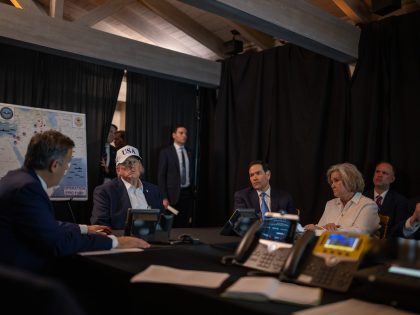Boers and Bantus
Vintage clips, from 1961, of Nelson Mandela, ZK Matthews, Helen Joseph, among others, on a Dutch TV program talking liberation from white supremacy.

Screengrab of the young Nelson Mandela, in 1961, appearing in the Dutch TV special, "Boeren en Bantoes" (Boers and Bantus).
In February 2010, the “History” page of Dutch public TV channel, VPRO, posted some vintage video from a 1960 TV show, “Boeren en Bantoes: Apartheidspolitiek” (English translation: Boers and Bantus: Apartheid Politics), presented by the famed (by Dutch standards) broadcaster, G.B.J. Hiltermann, about a visit he took to South Africa. The program was posted to commemorate the 20th anniversary of Nelson Mandela’s release from prison. You can watch a part of it, here. At the time the program was recorded, he had a program called “De Toestand van de Wereld” (The Condition of the World) and was considered somewhat of a media authority on world politics. In the peculiar wat that Dutch public broadcasting was set up, VPRO represented the liberal Protestant view on Dutch public radio and TV.
Hiltermann describes South Africa as a “multicultural country.” He never mentions Dutch colonialism (he mentions the VOC, but doesn’t identify the company as the representative of Dutch colonialism) and introduces the country as a British colony. For much of the program Hiltermann — who says upfront he and his viewers oppose apartheid — makes a special pleading for Apartheid’s rulers and its supporters, recycles their propaganda and rationalizes the bantustans (homelands) and white supremacy. For example, Hiltermann talks of speaking to “negers” (negroes) who are “min of meer ontwikkeld en bepaald niet dom zijn” (more or less developed and don’t appear dumb). None of this surprising, given that later historians exposed Hiltermann as a Nazi symphatizer. But”Boeren en Bantoes” is also remarkable for other reasons:
For one, it contains rare footage of short, pointed statements by resistance leaders, interviewed in front of the Supreme Court in Pretoria during a trial. They include, the very young Nelson Mandela; the ANC leader and academic Z. K. Matthews; interviews with “representatives” of Indian and coloured organizations–the first is a young Ahmed Kathrada and the second, is someone identified as “die heer Lawless;” finally, there’s a statement by Helen Joseph of the Congress of Democrats, an organization representing white leftists in alliance with the ANC. It is worth watching, even if you can’t speak or understand Dutch, just for the interview clips.
H/T Bart Luirink.


















